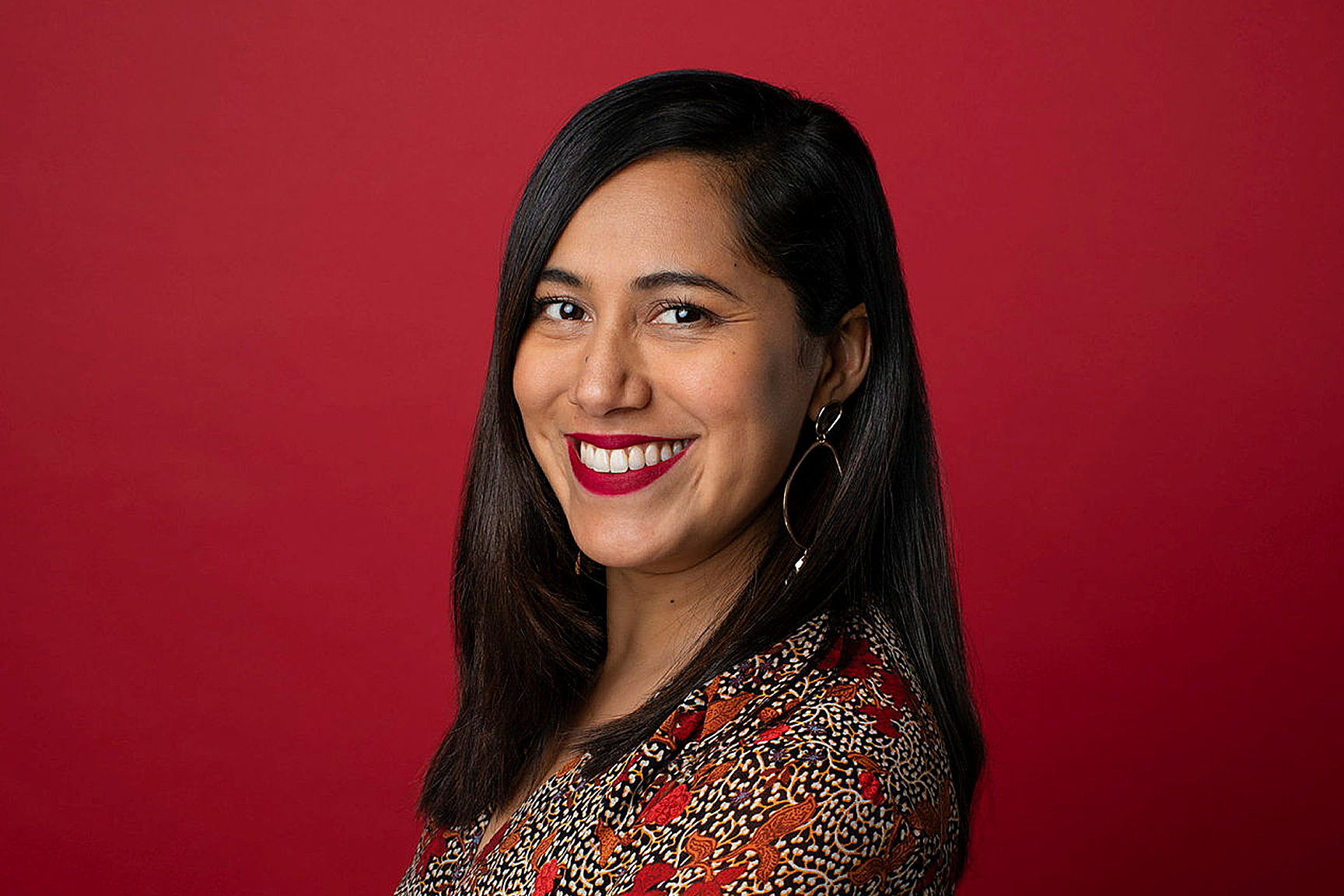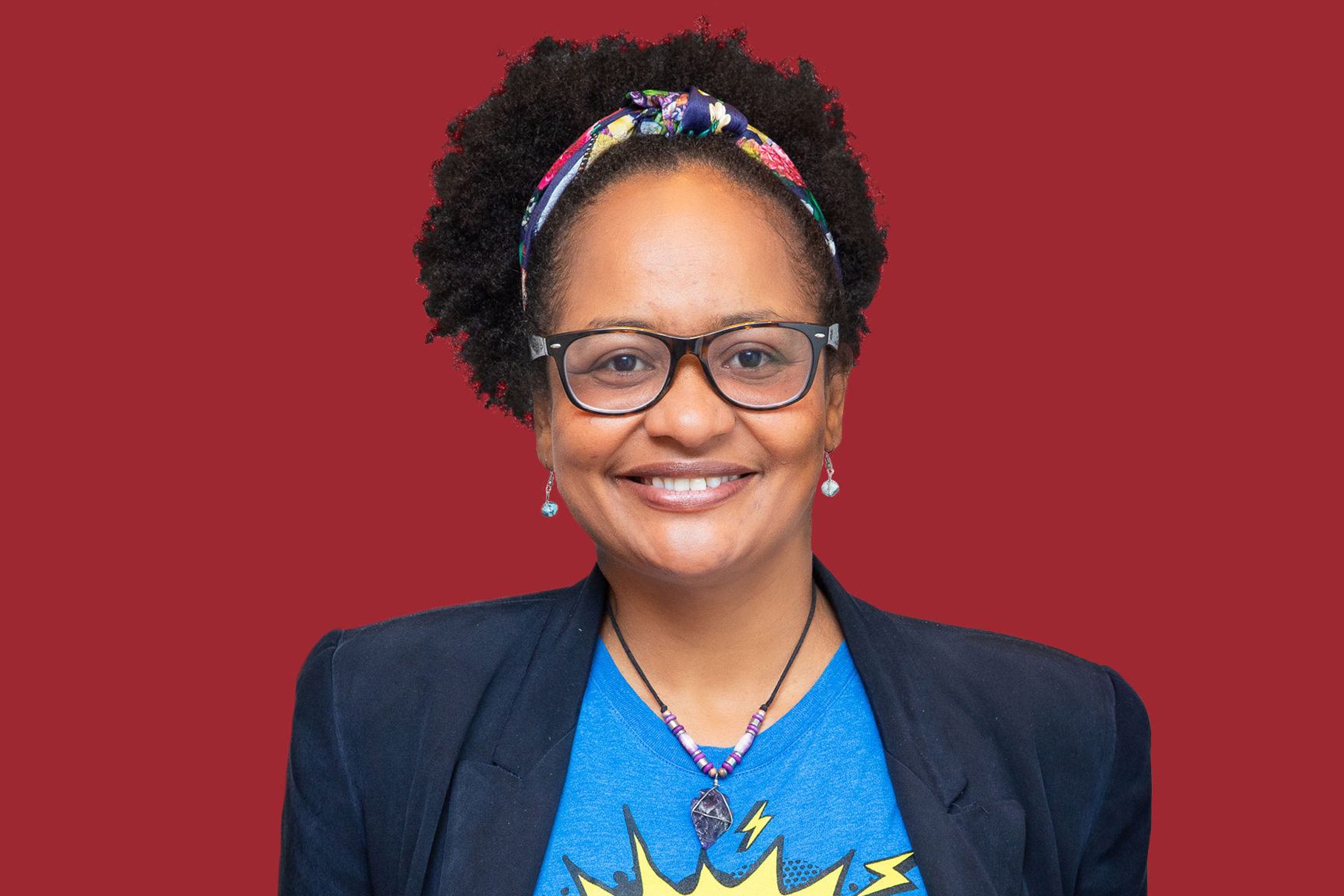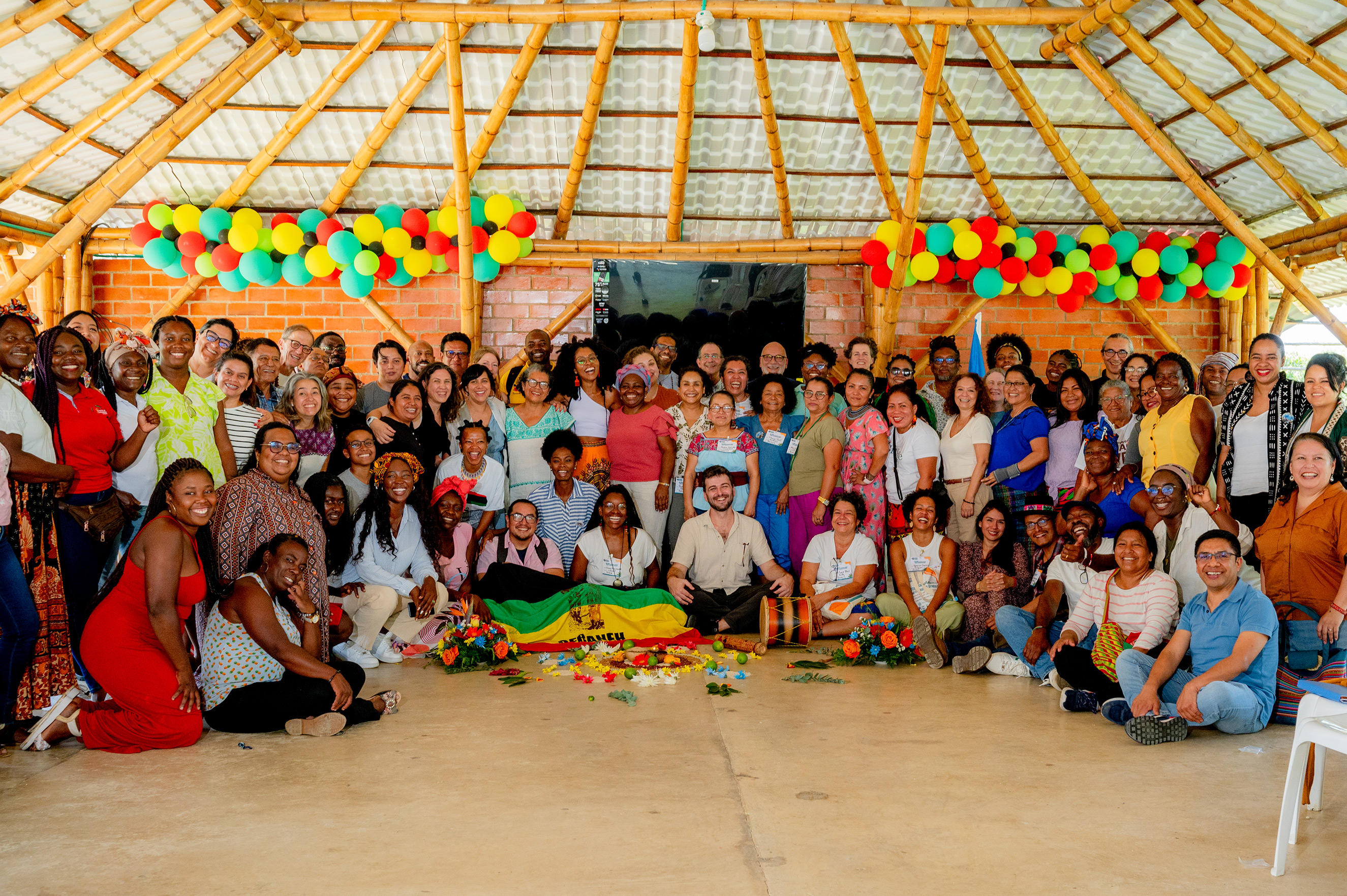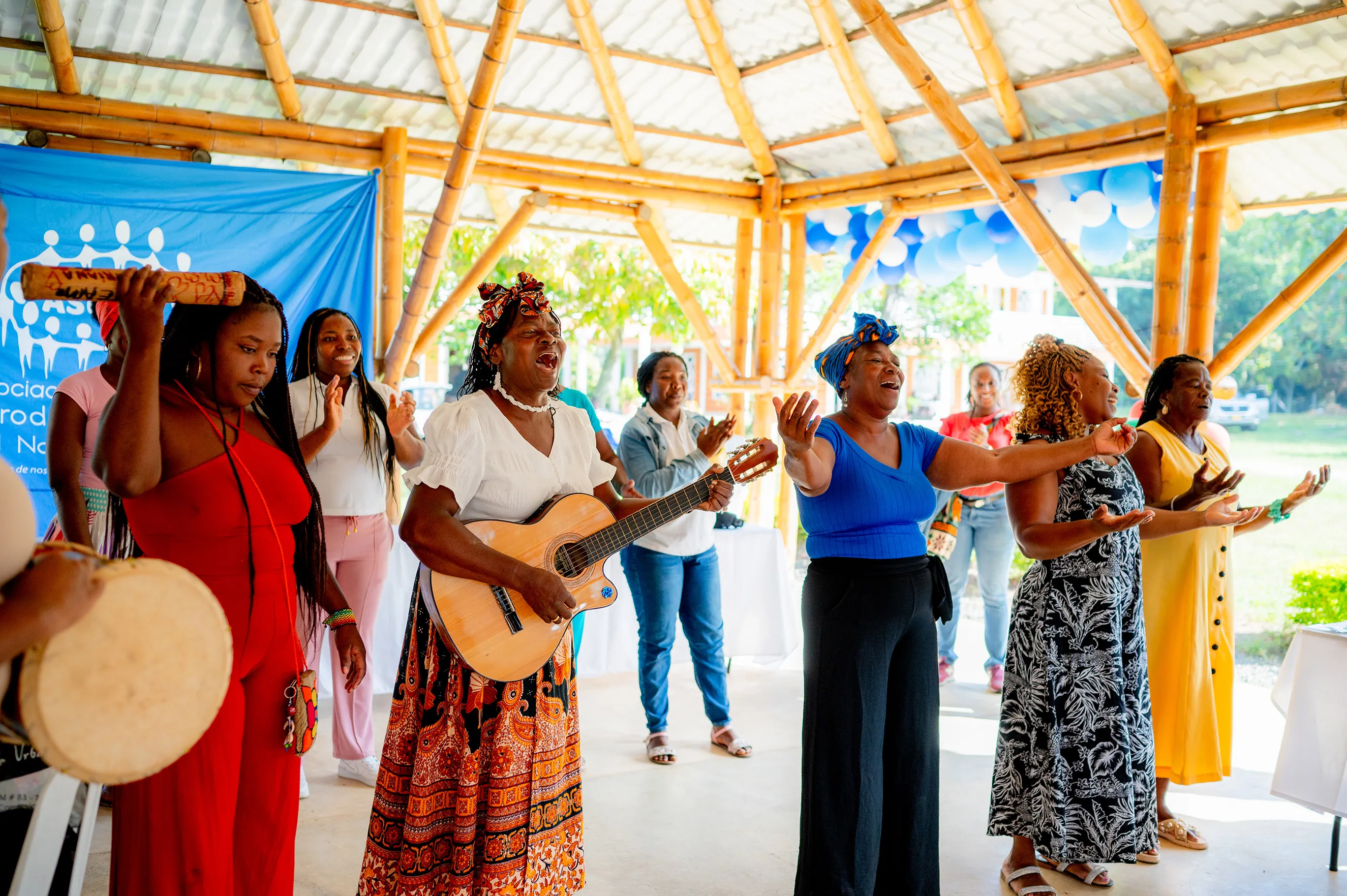Institutional Strengthening of Indigenous, Afro-Descendant, and Traditional People’s Organizations
Indigenous, Afro-Descendant, and Traditional People’s (IAT) organizations are key partners in several Ford Foundation program strategies at the forefront of social, political, cultural, and environmental transformation. They do critical work to address some of the most urgent challenges driving inequality worldwide. Supporting their organizational development and resilience is key to the sustainability of the social justice ecosystem.
The Ford Foundation’s Building Institutions and Networks (BUILD) program focuses on supporting social justice organizations as they become stronger and more resilient by providing long-term and flexible grants, as well as targeted institutional capacity building. As part of this initiative, the BUILD team has worked in partnership with our regional offices in Mexico and Central America, West Africa, Brazil, Indonesia, the Andean Region, and East Africa to explore how the concept of strengthening organizations and networks looks different for institutions based in the Global South and rooted in Indigenous and/or traditional cultures, and how philanthropy can best support them.

Sophia Hernández Reyna
Program Officer, Building Institutions and Networks (BUILD)

Sindis Meza
Senior Program Officer, Andean Region

Since 2019, the BUILD program has supported the Caribbean Central American Research Council (CCARC) to facilitate a cohort of self-identified IAT organizations and networks to foster organizational development practices based on their views, needs, and priorities. The ideas emerging from this space help the BUILD program reflect on its capacity-building model, which includes sharing common ground and discussing issues that are of interest to IAT organizations. Their “cosmovisión”—a Spanish term widely used by Indigenous and traditional communities to refer to a set of beliefs, values, and knowledge systems that give meaning to the lives of people and communities—about institutional capacity building is part of a broader agenda for organizational capacity strengthening.
Bilateral and collective discussions with grantees, convenings, and internal conversations at Ford have led to significant lessons on how Ford can support IAT organizations. Broadly speaking, we have learned to challenge our assumption that this type of capacity-building work is inherently positive; there can be unintended consequences, even with the best of intentions. Philanthropy’s implementation of this work needs to be done while taking the following considerations into account:
- People and communities are at the center of institutional strengthening. For IAT organizations, territorial, political, and cultural dimensions are always paramount. The well-being of their people and their land or community is more important to them than their organization’s survival, or than any particular political or economic ideology or policy. When talking about institutional strengthening with IAT organizations, it’s never just about the organization. It is first about the people, the community and the land.
EXAMPLE:
The Afro-Descendant organizations that are part of the IAT cohort have continuously organized among themselves to influence policies and spaces to ensure that their communities set the political agenda in Latin America. Uniting their visions and agendas also enables them to identify funding and implement racial justice initiatives in different settings and contexts—meaning this space has led them to go above and beyond with their institutional strengthening.
Read more
For example, our partners the Center for the Study of Labor Relations and Inequalities(CEERT), the Black Fraternal Organization of Honduras (OFRANEH), the National Afro-Colombian Peace Council (CONPA), and the National Coordination of Articulation of Black Rural Quilombola Communities (CONAQ) are key leaders in advancing the agenda of the Permanent Forum on People of African Descent operationalized by the United Nations General Assembly in August 2021.
- Trust “lo propio.” As shared by our longtime partners Filippo del Gatto and Margarita Antonio, who facilitate the IAT cohort and who have worked closely with IAT organizations for decades, IAT organizations often refer to “their own cosmovisión” as “lo propio,” meaning “our own,” when talking about their institutional strengthening journey. IAT organizations in the Global South want to develop their own priorities and processes for institutional strengthening, rooted in their own visions for this work, rather than relying on largely Global North frameworks for defining this process for them. In this case, IAT organizations in BUILD are largely aligned with Ford’s concept of institutional strengthening, which emphasizes resilient people, strategy, systems, and finances. However, IAT organizations also want to include their own “cosmovisión” for institutional resilience as it relates to life plans, community development, territories, culture, and community governance, etc. In BUILD, we’ve come to see “lo propio” as another way of framing one of BUILD’s pillars: the importance of having grantees in the driver’s seat.
EXAMPLE:
The Union of Cooperatives, Tosepan, is a grassroots movement that works to support the dignity and well-being of the Indigenous Maseual people in the Northern Highlands of Puebla, Mexico. Its BUILD grant received in 2020 has been an opportunity to strengthen both their historical cooperative model and their ancestral local government of collective ownership. Its BUILD grant has supported the expansion of several local government structures that sustain their Indigenous movement, as opposed to focusing on specific organizational areas. This infrastructure preceded their relationship with Ford and can be found in their “Masewal Code,” a written vision of their dreams and hopes for their community for the next 40 years. Supporting this vision has enabled a more collective decision-making process in which several community representatives can have a say in the goals of this grant.
- Take your time. Rushing institutional strengthening processes with IAT organizations is not useful because these networks prioritize collective decision-making and introspective processes that are deeply rooted in culture and community dynamics. Working through these processes requires time, as we have seen in large and small ways throughout BUILD.
EXAMPLE:
IAT organizations may take a year or more to develop their institutional strengthening priorities because those priorities must be approved by general assemblies of the community that take place only once a year.
Read more
Multi-year flexible grants are a particularly useful tool when working with IAT organizations because their processes do not match rigid timeframes and deliverables.
- Understand that IAT organizations need to share the wealth. Working with IAT networks means that institutional processes must go through the input of their member organizations, not just IAT organizers, for this to be a legitimate, participatory, and sustainable process.
EXAMPLE:
Aliansi Masyarakat Adat Nusantara (AMAN), a coalition that advocates for land protections and sovereignty for over 2,000 Indigenous communities across Indonesia, chose to spend most of its BUILD funds on monthly payments to local chapters and ensuring that each chapter had internet access and computers.
Read more
These investments didn’t have immediate or direct benefits to AMAN headquarters, but they proved essential to sustaining the organization’s work when COVID hit.
- Build program teams rooted in trust-based philanthropy. Reinforcing the trust-based philanthropy model not just with BUILD program teams but with all program staff who work in partnership with IAT grantees is fundamental to building relationships rooted in humility, respect, flexibility, and a deep commitment to equity and partnership.
EXAMPLE:
Every BUILD grant has two program officers: a lead thematic/regional program officer who holds the knowledge on the grantees’ strategic contributions to the field and a BUILD program officer who accompanies the organizations’ institutional strengthening journey. This unique partnership between these program officers allows for overarching institutional support with critical regional and issue area context.
Read more
For example, when supporting the preparation of a BUILD grant proposal of an organization or network in which decisions are made collectively, both program officers can jointly recommend a trusted consultant who has previous experience working with grassroots organizations in the specific country and language in which the grantee operates, and who knows how to adapt the institutional strengthening concepts and parameters to their needs.

Taken together, the lessons from the work of the IAT cohort have rippled across Ford’s broader work. The consultants who have facilitated this work and its participants have encouraged us to be more flexible and responsive to individual organizational needs and broaden our cultural understanding to center Global South voices, practices, and perspectives. We continue to learn how best to accompany IAT organizations in their institutional strengthening processes, and the IAT cohort continues towards a more robust, holistic, and strategic way of doing so. We also welcome joint reflections and conversations with other funders who are interested in supporting and learning about this type of work as part of our commitment to convening leaders through shared values and across geographies and issues.